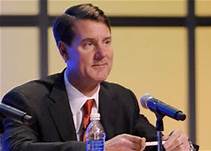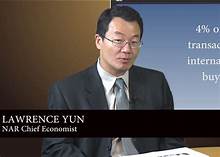-
 The Growing Influence of ESG Criteria on Commercial Lending Discover how ESG criteria are reshaping the commercial lending landscape, driving sustainable finance and green loan opportunities in the industry.
The Growing Influence of ESG Criteria on Commercial Lending Discover how ESG criteria are reshaping the commercial lending landscape, driving sustainable finance and green loan opportunities in the industry.

matt
PNC Earns $5.3B in 2018
- Wednesday, 16 January 2019

PNC Financial Services Group Inc. reported earnings of $5.3 billion in 2018, and earnings per share of $10.71. In the fourth quarter, the bank earned net income of $1.4 billion and $2.75 earnings per share.
[caption id="attachment_9139" align="alignleft" width="211"] Bill Demchak[/caption]
Bill Demchak[/caption]
"2018 was a successful year for PNC. Earnings per share increased, and our returns on average assets and common equity were strong,” said Bill Demchak, chairman, president and chief executive officer at PNC. “Record revenue was driven by higher net interest income and noninterest income, and we generated positive operating leverage for the year. We grew loans … [as well as the] successful launch of our national retail digital strategy.” Driven by its digital strategy, the bank increased its marketing budget by $13 million, compared with the third quarter of 2018.
Residential mortgage origination volume was $1.6 billion for the fourth quarter of 2018, compared with $2.1 billion for the third quarter, and $2.4 billion for the fourth quarter of 2017. Around 67 percent of fourth quarter of 2018 residential volume was for purchase transactions, compared with 72 percent in the third quarter, and 50 percent the fourth quarter of 2017.
The third-party residential mortgage servicing portfolio was $125 billion in the fourth quarter, compared with $127 billion in both the third quarter and in the fourth quarter of 2017. Residential mortgage loan-servicing acquisitions were $2 billion in the fourth quarter of 2018, compared with $6 billion for the third quarter and $1 billion for the fourth quarter of 2017.
Residential mortgage revenue decreased $17 million, reflecting a $19 million negative adjustment for residential mortgage servicing rights valuation, which was driven by a decline in long-term interest rates in the fourth quarter.
Nonperforming assets in the fourth quarter decreased $17 million, compared with the third quarter of 2018, because of lower real-estate owned and foreclosed assets. Nonperforming loans were stable reflecting a reduced number of nonperforming home equity and residential mortgage loans, which were offset by higher nonperforming commercial loans.
Average loan balances increased 1 percent, compared with the third quarter and 2 percent compared with the fourth quarter of 2017 due to growth in residential mortgage, auto, credit card and unsecured installment loans partially offset by lower home equity and education loans.
Average commercial lending balances increased $2.3 billion, reflecting seasonal and loan growth in PNC's multifamily agency warehouse lending. Average consumer lending balances increased $0.3 billion, to 73.7 billion, due to growth in residential mortgage, credit card, auto and unsecured installment loans partially offset by lower home equity and education loans.
Read more...Black Knight Upgrades Digital-Closing Solution
- Wednesday, 16 January 2019

Black Knight has enhanced the Expedite Close digital closing solution with advanced intelligence and data recognition capabilities. The platform has been able to support wet-ink, digital or hybrid mortgage closings, the upgrades will help determine the best way to close a loan based upon a lender's preferences and business rules, as well as jurisdiction-specific requirements.
"Right now, mortgage closing requirements are inconsistent and inefficient across the country, and even from lender to lender, or agent to agent," said Mike Brown, general manager of Black Knight's Lending Solutions division. "Expedite Close was designed to meet the challenges of today's closings, while delivering maximum benefit to our clients and their customers, and making the process, and implementation, as simple as possible."
Expedite Close can support fully digital closings, including eSign, eNotary and eClose components. For closings that are not fully digital, it automatically identifies and executes whatever combination of wet-ink and digital closing works best for the lender or the property jurisdiction, saving significant cost and time. Users cans adopt the features that meet their needs, or deploy complete digital closings, according to their timelines.
Also, advanced document-recognition capabilities enable static PDFs of closing documents to become searchable, eSignable and data-centric, allowing Expedite Close to streamline the post-closing process. The objective is to achieve increased speed, improve efficiency in the closing process, and support consistent origination process.
Expedite Close enhances the consumer experience by providing a more streamlined closing with the ability to review all necessary documents before the actual closing and eSign-appropriate documents. Lenders and settlement agents not only benefit from improved borrower satisfaction, but also from reduced risk and enhanced efficiencies without having to significantly alter their current processes.
Read more...Affordability Keeping Non-Homeowners from Buying A Home
- Monday, 14 January 2019

About 75 percent of non-homeowners believe homeownership is still part of the American dream. However, the biggest barrier for non-owners is that they are unable to afford a mortgage, according to the fourth-quarter “2018 Homeownership Opportunities and Market Experience (HOME)” survey from the National Association of Realtors.
During the last quarter of 2018, 43 percent of non-owners said they did not own a home because they were not in a position to purchase one, which is down from 49 percent who said the same in the third quarter. Thirty-three percent said they do not own because current life circumstances are not suitable for ownership, and 16 percent said they currently need the flexibility of renting.
So, what could encourage them to buy? Thirty-one percent of non-owners said an improvement in their financial situation would be the biggest motivator to encourage them to buy a home. Thirty-percent also said a change in their lifestyle, such as getting married, starting a family, or retiring, would also be a big motivator to buy.
“The lack of affordable and moderately priced homes has forced non-homeowners to delay achieving that part of the American dream,” says Lawrence Yun, NAR’s chief economist. “However, as the survey confirms, significant lifestyle changes like marriage or starting a family often spur non-owners to pursue homeownership.” The survey is based on more than 8,000 consumer responses.
Read more...


